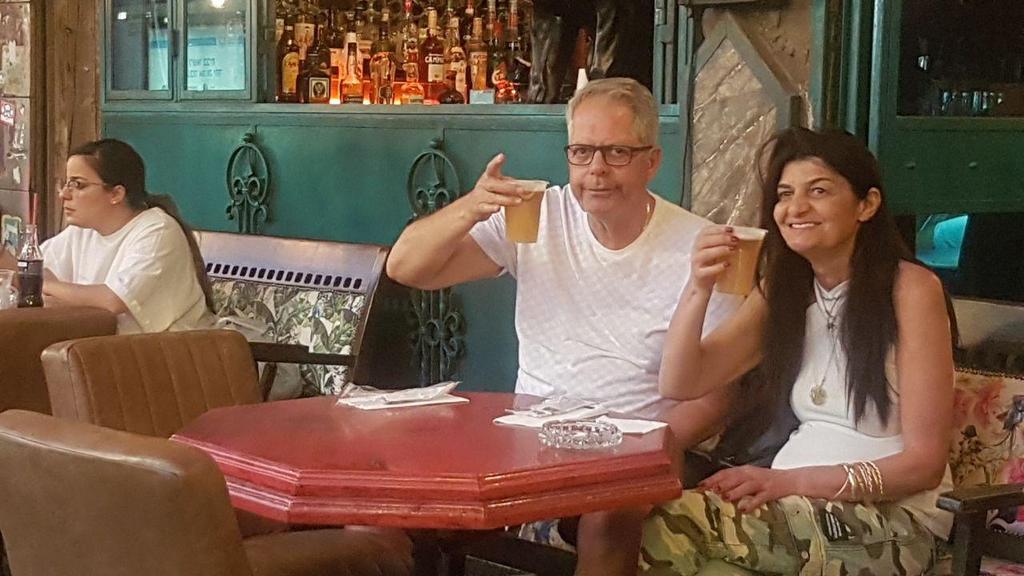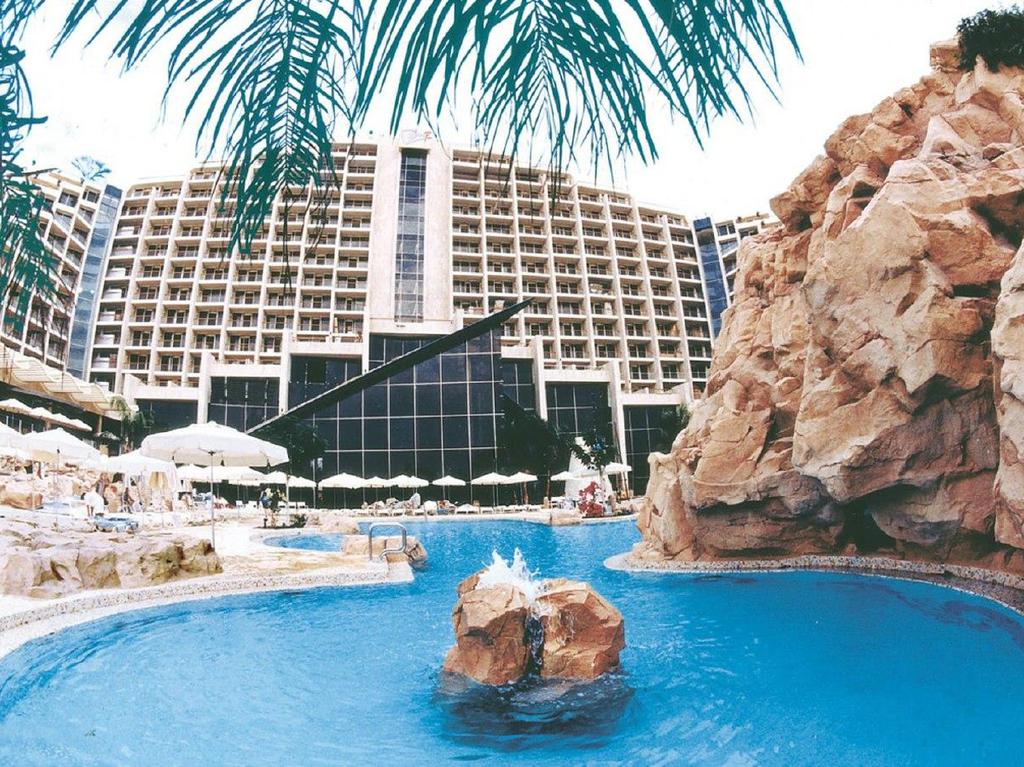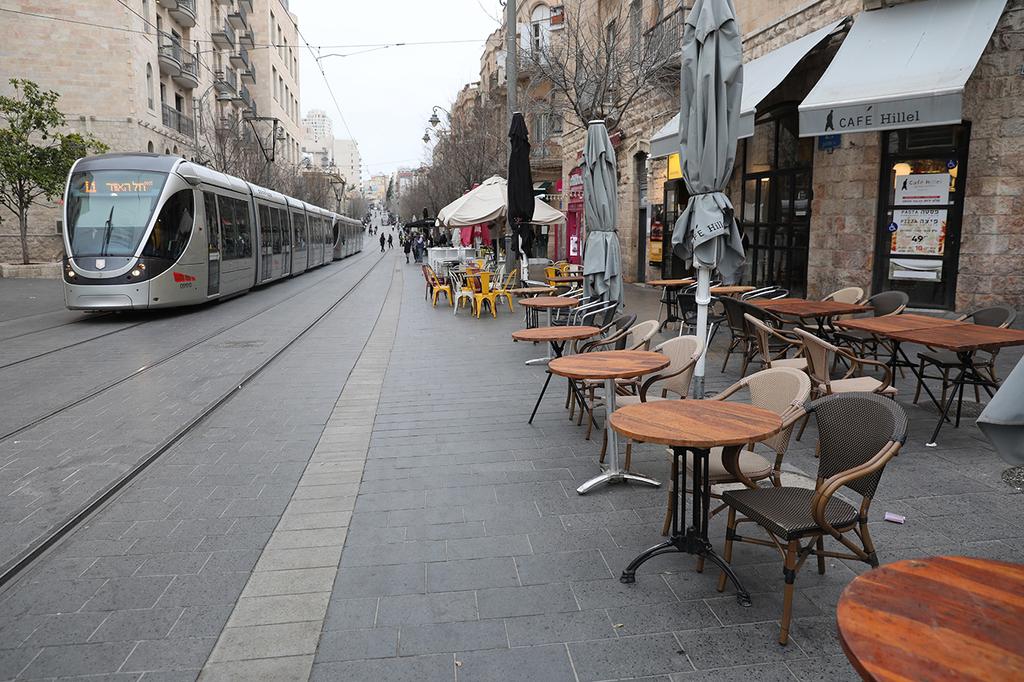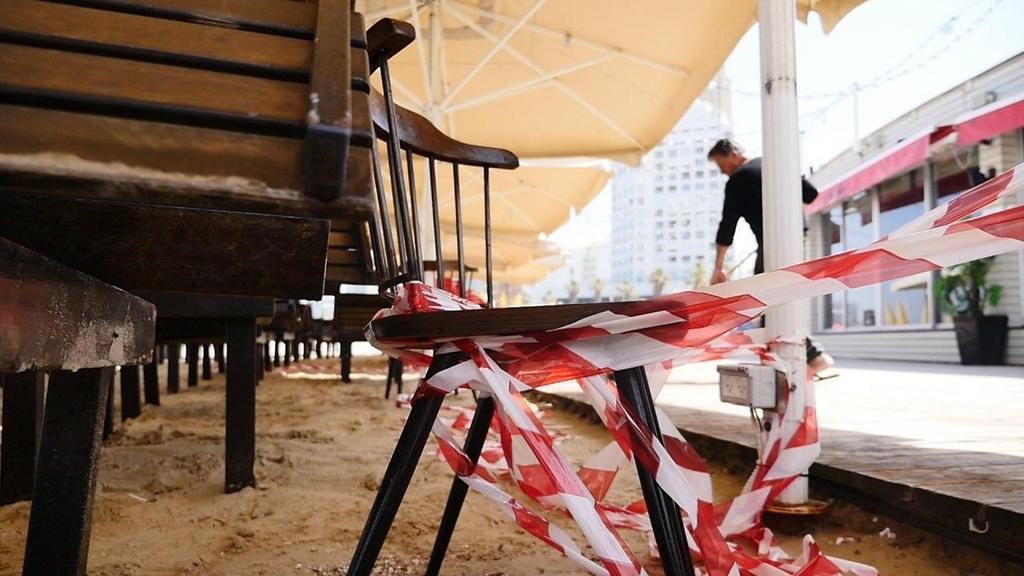The Israeli government on Tuesday approved the lifting of further restrictions imposed due to the coronavirus pandemic and allowed the opening of restaurants, bars, swimming pools and other tourist attractions as of Wednesday.
The ministers also approved increasing the number of people allowed in closed quarters in the workplace and in public transportation.
5 View gallery
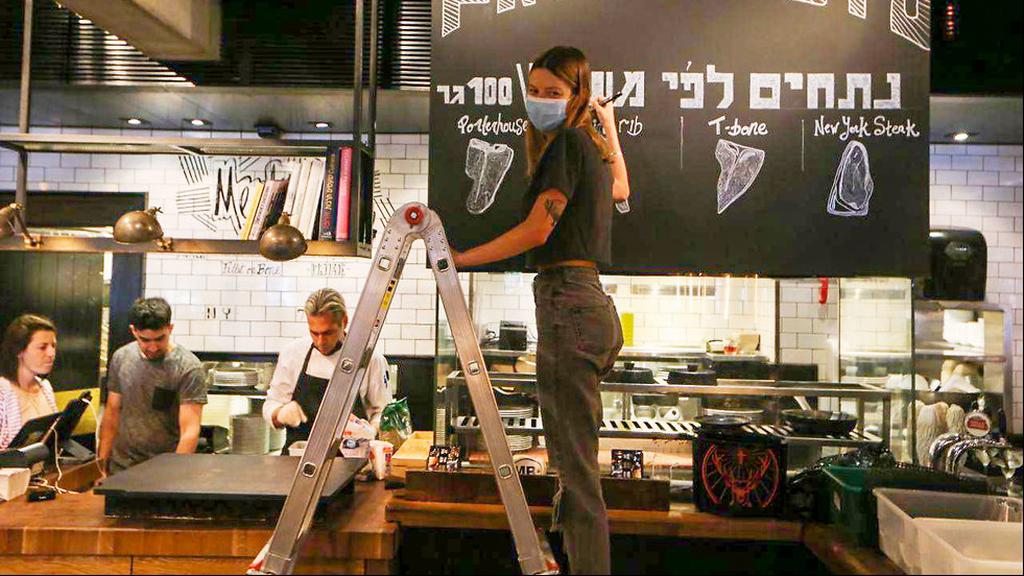

Tel Aviv restaurant prepares to reopen after coronavirus shutdown
(Photo: Moti Kimchi)
The measures were taken after the numbers of new cases of COVID-19 have been on a consistent decline.
Prime Minister Benjamin Netanyahu said his government is anxious to help the economy recover. "We would like to see people go out for a drink or a good time but we will watch developments and react accordingly," he said.
Restaurants, bars and other entertainment venues would be required to limit the number of customers and ensure social distancing or risk fines the Health Ministry announced.
Earlier restrictions on the number of people allowed to congregate in one location to 50 have also been lifted though social distancing requirements would remain in place according to the government.
However, many hotels and restaurants will remain closed due to economic hardship and those that will reopen, will be required to comply with new Health Ministry regulations, which have not yet been finally approved by the government.
The Dan Hotels chain, which has 17 hotels across the country, will only open its Eilat and Caesarea branches, joining Dan Panorama Tel Aviv, which was leased by the government as a facility to treat coronavirus patients with minor symptoms.
More hotels are expected to gradually reopen during the summer.
Dan Hotels CEO Ronen Nissenbaum said that the chain would only reopen hotels that usually host a predominately Israeli clientele, since travel restrictions have brought foreign tourism to a halt.
"Opening hotels based on foreign tourism, like those in Jerusalem, is not profitable because there are no flights. There are no tourists coming and the mandatory two-week isolation from overseas arrivals is still in place, so we won't open until this changes," he said.
Nissenbaum estimates the hotel industry would take two to three years to bounce back to the same work capacity experienced before the COVID-19 outbreak.
Israel Hotel Association President Amir Hayek said the reopening of hotels is a good sign, but the industry is still not out of the woods as only a fraction of the country's hotels is set to reopen this month.
Hayek hopes the return of Israeli tourists would help kickstart the struggling industry but also emphasized that local tourism alone will not be profitable enough to justify reopening many hotels.
"Local tourism isn't extensive enough to allow all hotels to open," said Hayek. "We've reached a point where even when they allow hotels to reopen, hoteliers need to ask themselves whether it's worth it. Everyone is tight on money right now - all hotels
- small and big."
The head of the restauranteur union, Shai Berman, estimated that about 4,500 of the country's 14,000 eateries will close down by the end of the year.
"Our concern is what will happen in two or three weeks when the initial excitement fades. What kind of reality are we returning to? Tourism is declining, and perhaps the Israeli public will have less money to spend. We will really feel it financially a month after reopening."
The outline is set to be approved by the government later Wednesday
According to the outline, businesses will place hand sanitizers and check patrons' temperature at the entrance and will place tables at least 1.5-2 meters apart. Restaurant staff will maintain strict hygiene and waiters will wear masks.
Customers will be required to make reservations ahead of arrival, sign a health declaration and be checked for temperature upon arrival.
Kitchen workers will not be required to wear masks. Dishes must be washed at a temperature higher than 72 degrees Celsius (160 degrees Fahrenheit).
Venues of up to 100 customers are can reach 100% occupancy while larger venues can reach a maximum of 85% occupancy. Customers will have to sit at least a meter apart outdoors.
First published: 11:49, 05.26.20


